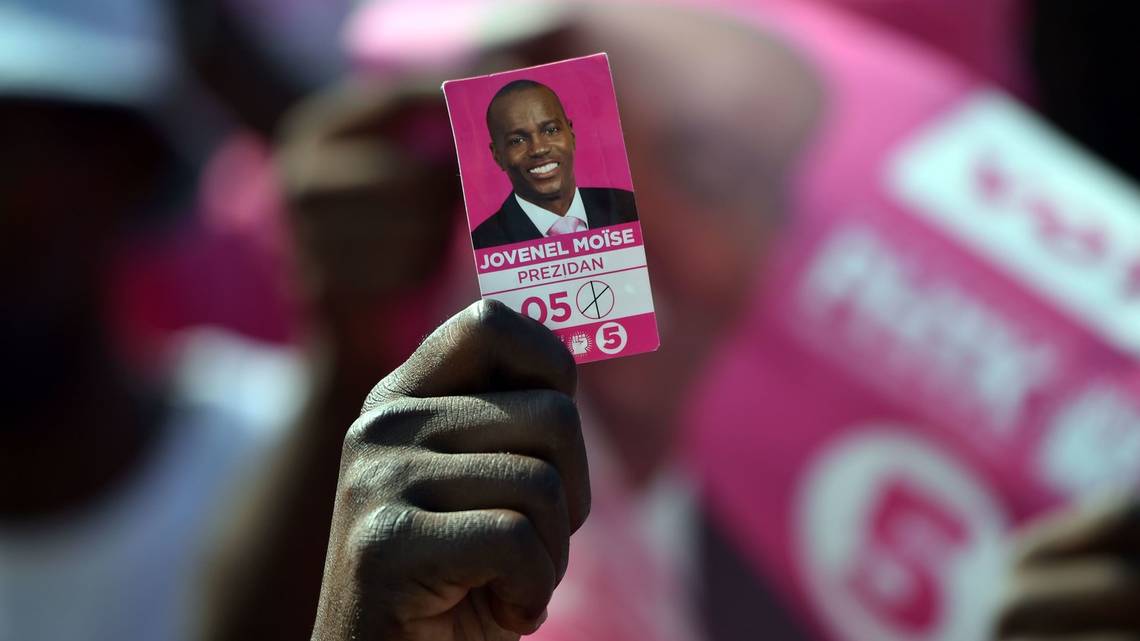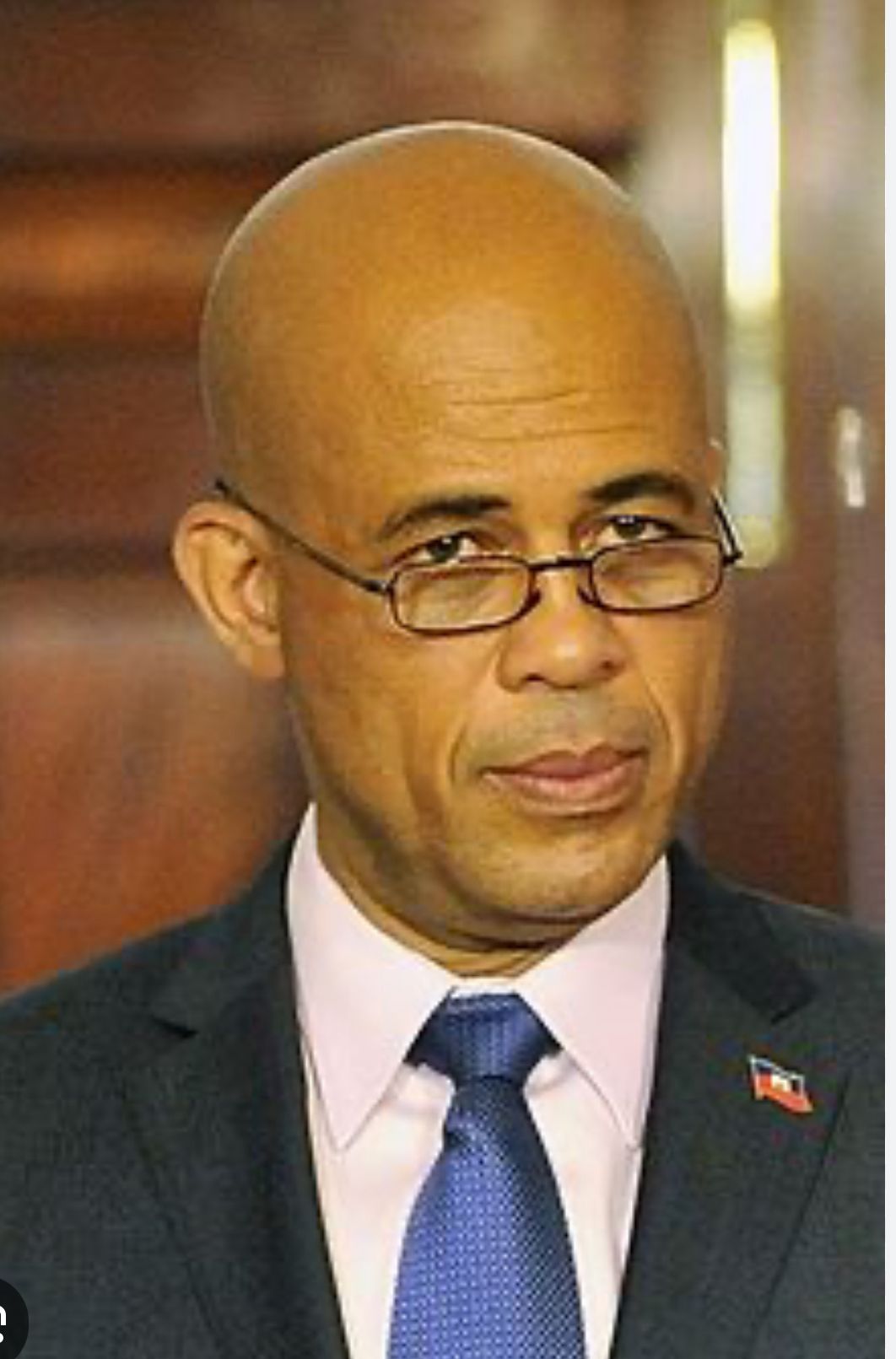|
Getting your Trinity Audio player ready...
|
HAITIAN PRESIDENT JOVENEL MOISE’S TIME IS UP. U.S. AND OTHER DEMOCRACIES MUST MAKE THAT CLEAR | Opinion
BY MARLEINE BASTIEN AND IRA KURZBAN
FEBRUARY 05, 2021 04:21 PM
Jovenel Moïse was declared Haiti’s president in 2017. However, he has acted like a dictator. When his term ends Sunday, he is unlikely to leave.
The Biden administration understandably is focused on its domestic challenges, but it cannot ignore the looming crisis in Haiti any longer. President Jovenel Moïse’s term, fed by spectacular corruption, mismanagement and repression is scheduled to come to a legal end on Sunday. Few believe he will leave as, in Trumpian fashion, he seeks to remain in power, notwithstanding the Haitian Constitution, the electoral law or the will of the Haitian people.
Moïse became president in 2017 through elections that were so deeply flawed and violent that almost 80 percent of Haitian voters did not, or could not, vote. He has avoided having any more elections, so Parliament became inoperative in January 2020, when most legislators’ terms expired.
When mayors’ terms expired in July, Moïse personally appointed their replacements.
In the meantime, life in Haiti has become increasingly bleak. Almost every day brings kidnappings or killings. The most notorious are the brutal kidnapping and murder of high school student Evelyne Sincere in October and the assassination of Bar Association president Monferrier Dorval in August.
The Moïse administration’s signature initiative is corruption. Early in his term, Moïse passed a budget law that diverted much of the state budget away from ministries to special administration and parliamentary accounts that lacked any accountability mechanisms. Government services — already crushingly limited — predictably have decreased as the money was siphoned off.
Government’s corruption has driven the economy into the ground: Inflation has been well into double digits for most of Moïse’s administration, the currency is devalued and jobs are scarcer than ever. More than one-third of the country needs emergency food assistance, even though there has not been a major natural disaster.
When Haitians complain about this state of events, they are brutalized. Police attacked adults and schoolchildren peacefully protesting kidnappings with tear gas and beatings on Jan. 17, 19 and 21. Sometimes, they are shot in the head with very limited chance of survival just for exercising their constitutional right of free speech. The government and allied gangs have organized a series of massacres in poor neighborhoods known to host anti-government organizing, killing dozens at a time.
Throughout Moïse’s term, he has been able to count on the Trump administration to send financial support, downplay the malfeasance and even pressure the opposition into compliance. But in December, the Trump administration seemed to signal that it had had enough, when the Treasury Department issued sanctions against two former Moïse officials and a former police officer for their involvement in the November 2018 La Saline massacre.
Most legal and electoral experts in Haiti — including the national federation of bar associations—have confidently concluded that Moïse’s term ends Sunday, Feb. 7, based on the language of the Constitution, electoral law and Moïse’s own precedence when he proclaimed that legislators’ and mayors’ terms ended last year.
The legal experts are joined by a broad range of Haitian civil society, from the Catholic bishops to Protestant churches to unions and tens of thousands of people taking to the streets to protest. If President Moïse is still in office on Monday, larger and more inclusive protests will multiply, and the Biden administration will soon have a full-blown political crisis on its hands.
There is a large consensus that the Moïse administration can no longer govern the country credibly. His time has legally expired, and he must be removed. It is important that decision-makers in the United States, at the executive, legislative and local levels, send a strong signal and take appropriate action to support constitutional government in Haiti.
The Haitian people who are fighting in the streets, amid a brutal repression reminiscent of the Duvalier era, need our support.
There needs to be a credible transition in Haiti to end the violent turn toward a dictatorship, and the Haitian people, with the assistance of the OAS and the United States, should play a forceful role in maintaining constitutional government.
Any democratic solution must recognize that all socioeconomic groups in Haiti and, particularly, local democratic organizations must have a seat at the table to ensure a peaceful transition of power.
Marleine Bastien is executive director the Family Action Network Movement (FANM). Ira Kurzban is a Miami-based immigration attorney.






